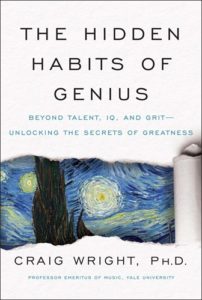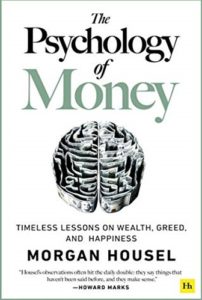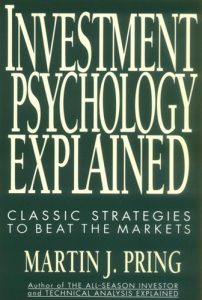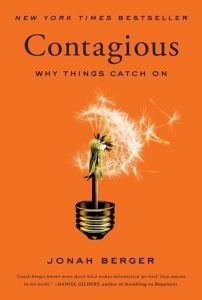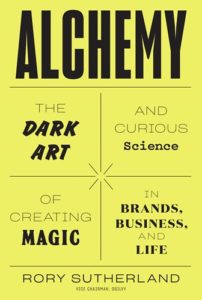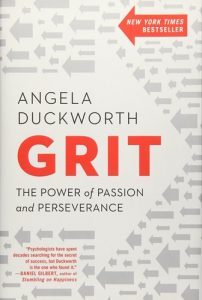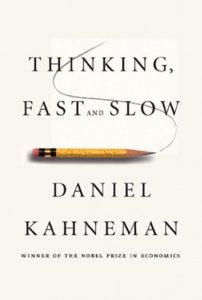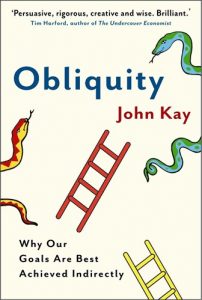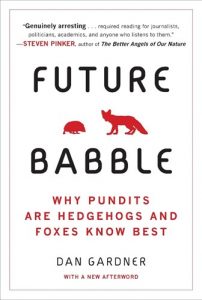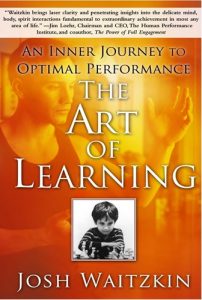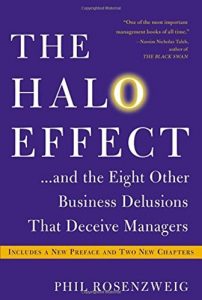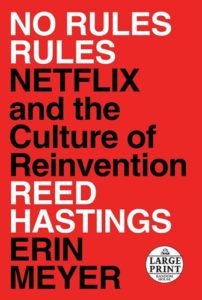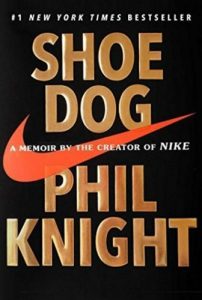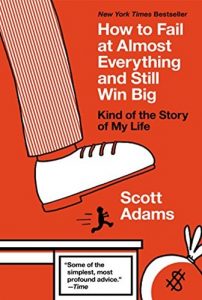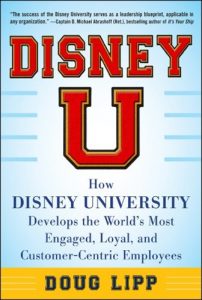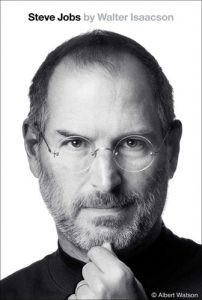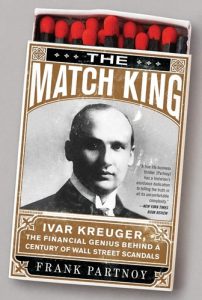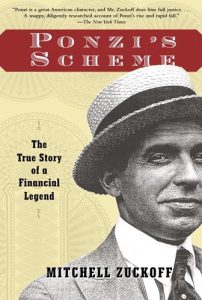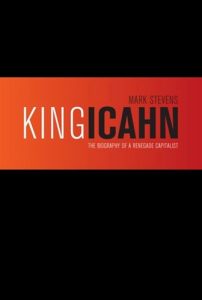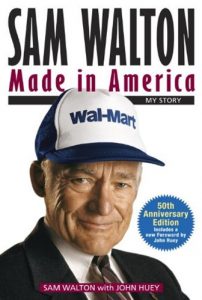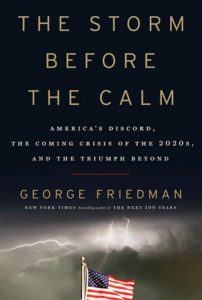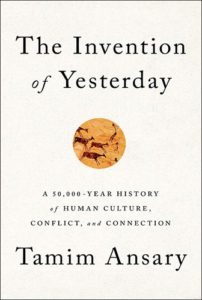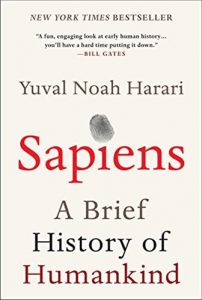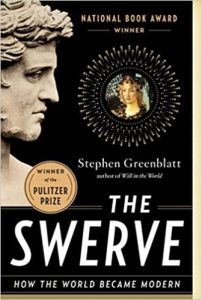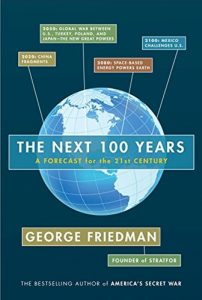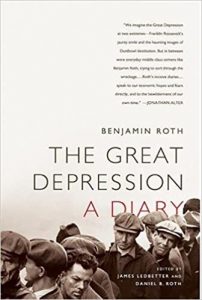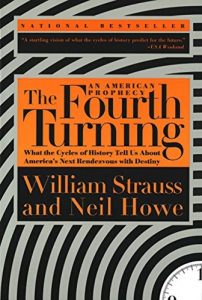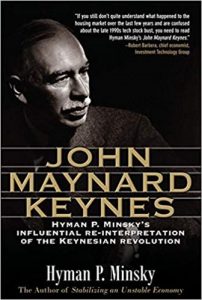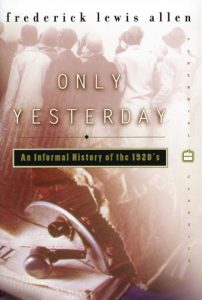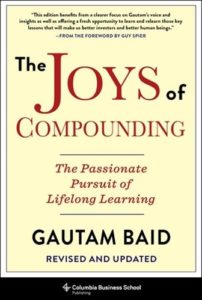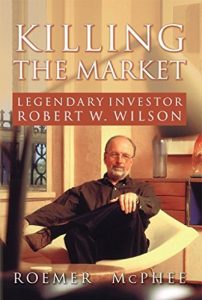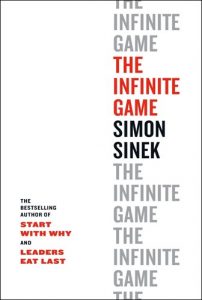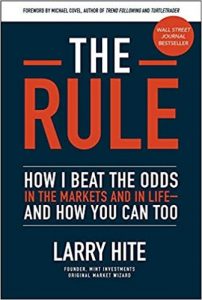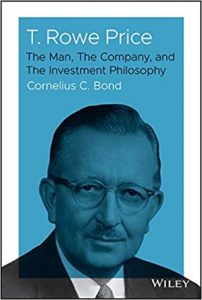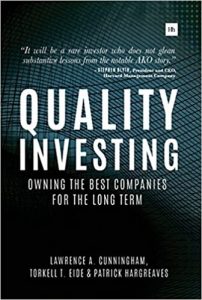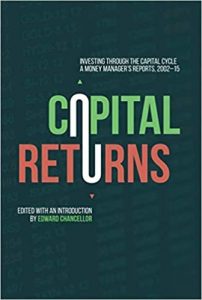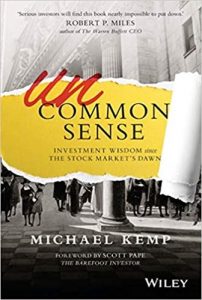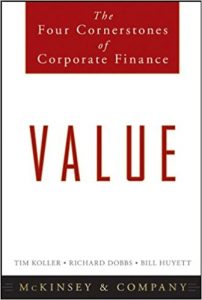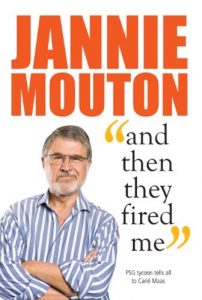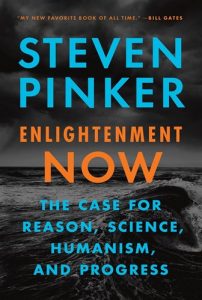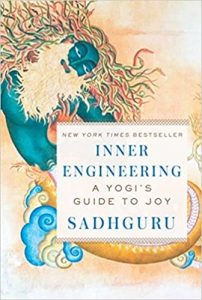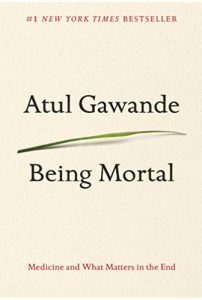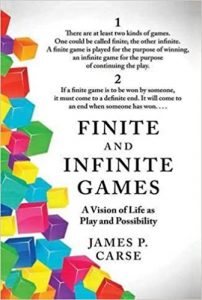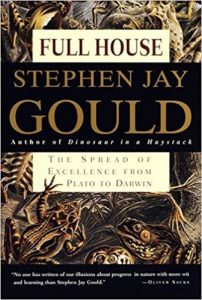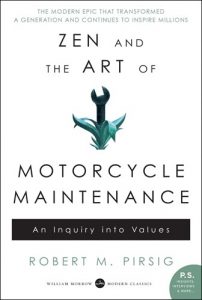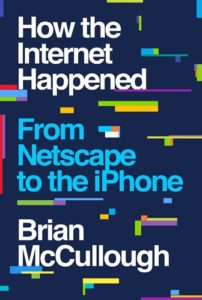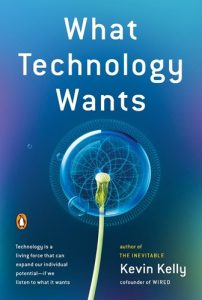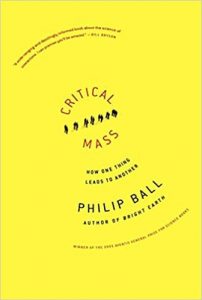- BEHAVIORAL SCIENCES
- BIOGRAPHIES & COMPANIES
- HISTORY & ECONOMICS
- INVESTING & STRATEGY
- PHILOSOPHY & SOCIOLOGY
- SCIENCE & TECHNOLOGY
The Hidden Habits of Genius: Beyond Talent, IO, and Grit – Unlocking the Secrets of Greatness
By Craig Wright, 2020 (336 pages)
Yale music professor who teaches a class on geniuses offers fascinating accounts of some of history’s most impressive and impactful innovators, with some tips and secrets for bringing out the genius in all of us.
The Psychology of Money: Timeless lessons on wealth, greed, and happiness
By Morgan Housel, 2020 (256 pages)
Blogger and partner of the socially-oriented VC firm, Collaborative Fund, emphasizes the importance of mindset and psychology in investing. Draws from the author’s vast readings, including of 1930s US historian Fredrick Lewis Allen. Loaded with precious quotes and insights.
Investment Psychology Explained: Classic Strategies to Beat the Markets
By Martin J. Pring, 1992 (288 pages)
Experienced fund manager surveys the psychological traps that investors fall into and offers strategies for coping with them, while arguing that there are no short cuts to investment success.
Contagious: Why Things Catch On
By Jonah Berger, 2013 (256 pages)
Survey on how ideas spread or go viral, with supporting data on behavior biases that can be harnessed for business advantage.
Alchemy: The Dark Art and Curious Science of Creating Magic in Brands, Business, and Life
By Rory Sutherland, 2019 (384 pages)
Funny and instructive accounts by Vice Chairman of Ogilvy on the magic of brands and the way people behave towards them.
Grit: The Power of Passion and Perseverance
By Angela Duckworth, 2016 (352 pages)
Powerful message, backed by scientific data, on the importance of “grit” in achieving success. Highlights how purpose and mindset drive grit.
Thinking, Fast and Slow
By Daniel Kahneman, 2011 (512 pages)
The bible of behavioral finance, with broad applications to investing generally, and sound decision-making in particular.
Obliquity: Why Our Goals Are Best Achieved Indirectly
By John Kay, 2011 (224 pages)
An academic and philosophical argument for why great financial outcomes can be achieved by focusing away from profits as a central goal.
Future Babble: Why Pundits Are Hedgehogs and Foxes Know Best
By Daniel Gardner, 2011 (320 pages)
Eye-opener on how people are frequently scared of the future – and how the search for answers leads many astray.
Screamfree Parenting, 10th Anniversary Revised Edition: How to Raise Amazing Adults by Learning to Pause More and React Less
By Hal Runkel, 2007 (240 pages)
Psychologist shares accounts of how well pausing more and reacting less works with children, while offering strategies for coping with defiance.
The Art of Learning: An Inner Journey to Optimal Performance
By Josh Waitzkin, 2007 (288 pages)
Chess prodigy in movie “Searching for Bobby Fisher” shows the mindset of an elite performer, and how he excelled in both chess and martial arts.
The Halo Effect:…and the Eight Other Business Delusions that Deceive Managers
By Phil Rosenzweig, 2007 (256 pages)
Insights on human behavior that are especially relevant in stock research. Explains Wall Street better than it was perhaps intended.
Top recommendations
No Rules Rules: Netflix and the Culture of Reinvention
By Reed Hasting & Erin Meyer, 2020 (320 pages)
Netflix co-founder Reed Hastings and INSEAD Professor Erin Meyer profile Netflix’s unique culture of radical transparency, constant feedback, and the removal of rules in favor of a more flexible style of management that inspires innovation and excellence.
Shoe Dog: A Memoir by the Creator of Nike
By Phil Knight, 2016 (400 pages)
Captivating story with details previously not public on the early days of Nike, including some heartbreaking and inspiring stories about family.
Trillion Dollar Coach: The Leadership Playbook of Silicon Valley’s Bill Campbell
By Eric Schmidt, 2019 (240 pages)
Biography with practical advice on managing and inspiring high-achievers by empowering them, as the late CEO of Intuit did throughout his life.
Bad Blood: Secrets and Lies in a Silicon Valley Startup
By John Carreyrou, 2018 (352 pages)
Shows how gullible smart people can be, and the shocking effectiveness of “reality distortion fields” in Silicon Valley.
How to Fail at Almost Everything and Still Win Big: Kind of the Story of My Life
By Scott Adams, 2013 (256 pages)
Inspirational life story by the creator of the Dilbert cartoon, with particular focus on how to overcome adversities, establish a niche, and stay happy.
Disney U: How Disney University Develops the World’s Most Engaged, Loyal, and Customer-Centric Employees
By Doug Lipp, 2013 (240 pages)
Management book profiling how Disney instills a culture of excellence using tactics that work as well in the field as it does in the office and at home with the kids. Even when you go home – the show never ends.
Steve Jobs
By Walter Isaacson, 2011 (656 pages)
Published three weeks after he died, this biography captured the genius of Steve Jobs, and showed how the best leaders are not always the nicest and best mannered – and Jobs was neither, yet he changed the world.
Gilded Lily: Lily Safra: The Making of One of the World’s Wealthiest Widows
By Isabel Vincent, 2011 (352 pages)
Controversial yet captivating story of a Brazilian woman who survived several marriages that left her a billionaire. This book was banned in Brazil due to its inflammatory accusations of murder.
The Match King: Ivar Kreuger, The Financial Genius Behind a Century of Wall Street Scandals
By Frank Partnoy, 2009 (288 pages)
Story of a Swedish financier who took Wall Street for a ride during the roaring 1920s. Fascinating to observe how often this story repeats throughout history.
Ponzi’s Scheme: The True Story of a Financial Legend
By Mitchell Zuckoff, 2005 (416 pages)
Story of a fraudulent scheme orchestrated in the US during the roaring 20s, but also a love story. He was jailed in 1920 and did 14 years in prison, then moved to Rio de Janeiro where he is said to have died penniless.
King Icahn: A Biography of a Renegade Capitalist
By Mark Stevens, 1993 (336 pages)
Unauthorized biography that mixes disgust and admiration to paint the picture of a skillful pit bull. Author doesn’t make you like the man, but he doesn’t hide his admiration for his the genius in Carl Icahn, TWA aside.
Sam Walton: Made In America
By Sam Walton, 1992 (288 pages)
Management advice from the late creator of Walmart. Chapter 17, with Sam’s 10 Rules for Building a Business, is worth 1000 books.
Top recommendations
The Storm Before the Calm: America’s Discord, the Coming Crisis of the 2020s, and the Triumph Beyond
By George Friedman, 2020 (256 pages)
Well-respected geopolitical forecaster takes a stab at predicting how the U.S. will come out of its current social and political predicament, to continue to reign large as the world’s only living empire.
The Invention of Yesterday: A 50,000-Year History of Human Culture, Conflict, and Connection
By Tamim Ansary, 2019 (448 pages)
Captivating a insightful history of human kind as told by an Afghan-born scholar with a knack for connecting seemingly desperate events in a cohesive and highly readable narrative. Precious insights on money, religion, human nature, failed civilizations, and the role of technology.
Sapiens: A Brief History of Mankind
By Yuval N. Harari, 2015 (464 pages)
Engaging and informative narrative of humanity, as well as a survey of human reality which mixes philosophy, economics, religion, and the role of technology is shaping the future.
The Swerve: How the World Became Modern
By Stephen Greenblatt, 2011 (368 pages)
Celebrated historian tells the story of how the knowledge from the Roman philosophical era was preserved and how it sparked the renaissance.
The Next 100 Years: A Forecast for the 21st Century
By George Friedman, 2009 (272 pages)
Offers framework for controversial, yet intriguing predictions on political cycles, demographics, and the era of US hegemony, which author sees culminating in space warfare.
The Great Depression: A Diary
By Benjamin Roth, 2009 (288 pages)
Eye-opening account of the great depression told from the driver’s seat by a lawyer obsessed with wealth preservation, writing in his diary during the 1930s as the world was ending.
Wealth, War & Wisdom
By Barton Biggs, 2008 (368 pages)
Written by renowned market observer and historian, tells the history of the stocks during wars to reveal the market’s amazing capacity in anticipating turns and predicting victory.
The Great Influenza: The Story of the Deadliest Pandemic in History
By John M. Barry, 2004 (560 pages)
History of the Spanish flu with insights on the shortcomings of the Hoover administration, World War 1 propaganda, and the breakthroughs in medicine that ensued from this under-covered historical tragedy.
The Fourth Turning: What the Cycles of History Tell Us About America’s Next Rendezvous with Destiny
By Willian Strauss, 1996 (400 pages)
Interesting survey of demographics and generational moods and trends that explain more than we might realize about consumer preferences, markets, and economies.
John Maynard Keynes
By Hyman P. Minsky, 1975 (181 pages)
Classic reexamination of John Maynor Keynes by a renowned academic who argues that what most people consider Keynesian economics is at odds with Keynes himself believed and preached.
The Great Contraction, 1923-1933
By Milton Friedman, 1963 (265 pages)
Influential chapter from Friedman’s A Monetary History of the United States (published as a stand-alone paperback in 1965) argues that the Federal Reserve could have avoided the 1930s Depression.
Only Yesterday: An Informal History of the 1920s
By Frederick Lewis Allen, 1931 (354 pages)
Written in 1930 and publish in 1931, this book exposes how the perception of the 1929 crash changed over time, and especially with the Great Depression in hindsight.
Top recommendations
The Joys of Compounding: The Passionate Pursuit of Lifelong Learning
By Gautam Baid, 2020 (456 pages)
Indian-born, US-based investor Gautam Baid provides a detailed and comprehensive review on investing and the general pursuit of knowledge, with great quotes and real-life examples from his experience with Indian stocks. Chapter 22 is a gem.
Killing the Market: Legendary Investor Robert W. Wilson
By Roemer McPhee, 2016 (104 pages)
Story of a legenday long/short money manager who produced incredible returns during his 40 year investment career by deployed maximum leverage.
The Man Who Solved the Market: How Jim Simons Launched the Quant Revolution
By Gregory Zuckerman, 2019 (384 pages)
Biography of a brilliant and accomplished mathematician who launched the quant revolution and has managed to remain one of the best-performing and most secretive hedge funds ever.
The Infinite Game
By Simon Sinek, 2019 (272 pages)
Consultant applies the concepts in James Carse’s book, Finite and Infinite Games, to offer insights and advice on business strategy and culture.
The Rule: How I Beat the Odds in the Markets and in Life – and How You Can Too
By Larry Hite, 2019 (256 pages)
Autobiography of the unlikely rise and triumph of a legendary trader and hedge fund pioneer who shares the lessons and learnings of a lifetime of beating the odds.
T. Rowe Price: The Man, The Company, and The Investment Philosophy
By Cornelius C. Bond, 2019 (272 pages)
Story of the impressive founder, the culture, and the time-tested investment philosophy of one of the world’s most successful investment management firms.
Quality Investing: Owning the Best Companies for the Long Term
By Patrick Hargreaves, 2016 (224 pages)
Precious review of respected UK hedge fund AKO Capital’s quality investing approach, rich with specific examples of companies and industries and their quality attributes.
Capital Returns: Investing Through the Capital Cycle: A Money Manager’s Reports 2002-15
By Edward Chancellor, 2015 (225 pages)
Explains the investment philosophy of UK hedge fund Marathon Capital with various examples and excerpts from company reports and insights on quality investing.
Uncommon Sense: Investment Wisdom since the Stock Market’s Dawn
By Michael Kemp, 2015 (368 pages)
Easy to read survey of investment theory and practice with a common sense approach, extensive historical perspective, and captivating narratives.
Value: The Four Cornerstones of Corporate Finance
By McKinsey & Company, 2010 (272 pages)
McKinsey ‘s more readable version of Valuation, with focus on corporate strategy, provides a simple framework for understanding and detecting value creation.
And Then They Fired Me
By Jannie Mouton, 2011 (217 pages)
Autobiography of the Warren Buffett of South Africa, sharing his guiding principles and precious insights on investing, which apply surprisingly well to less-chaotic capital market.
Common Stocks and Uncommon Profits
By Philip A. Fisher, 1958 (288 pages)
Best seller from 1958 by legendary growth investor providing time-tested criteria for identifying outstanding companies and investing in them for the long-run.
Top recommendations
Enlightenment Now: The Case for Reason, Science, Humanism, and Progress
By Steven Pinker, 2018 (576 pages)
Optimistic assessment of the human condition, argues that the world is not falling apart, and that the forces of reason will usher progress.
Inner Engineering: A Yogi’s Guide to Joy
By Sadhguru Jaggi Vasudev, 2016 (288 pages)
A popular and highly-regarded Indian Yogi shares his guide and strategies for achieving happiness, calmness, and fulfilment.
Being Mortal: Medicine and What Matters in the End
By Atul Gawande, 2014 (304 pages)
Influential surgeon and author of The Checklist Manifesto, confronts the inevitability of death and how medicine often runs counter to the interests of the human spirit.
Finite and Infinite Games
By James Carse, 1986 (160 pages)
Theology professor explains the economic theory of cooperation from a philosophical and theological standpoint and without referencing economics.
Full House: The Spread of Excellence from Plato to Darwin
By Stephen Jay Gould, 1996 (244 pages)
Draws from anthropology, chaos theory, and common sense to propose fascinating theories on how evolution works and why humans are wired to misinterpret reality.
Zen and the Art of Motorcycle Maintenance: An Inquiry into Values
By Robert M. Pirsig, 1974 (412 pages)
Enlightening fictional account by a philosopher who goes on a cross-country motorcycle trip with his 11-year old son following a nervous breakdown that required time at a mental institution.
Top recommendations
Platform Revolution: How Networked Markets Are Transforming the Economy – And How to Make Them Work for You
By Geoffrey G. Parker, 2016 (352 pages)
The best book on platforms; explains how they differ from traditional businesses and offers strategies for growing, monetizing, and creating value.
How the Internet Happened: From Netscape to the iPhone
By Brian McCullough, 2018 (448 pages)
A contemporary history of how the internet became what it is today, as told by a tech blogger who profiles of the key personalities, companies, and products that shaped the present. Precious insights on the role of culture, software, platforms, and monetization schemes.
More from Less: The Surprising Story of How We Learned to Prosper Using Fewer Resources—and What Happens Next
By Andrew McAfee, 2019 (352 pages)
Timely survey of how technology is allowing mankind to proper while using fewer resources. While not necessarily the author’s intention, his arguments and conclusions are helpful for understanding today’s markets.
AI Superpowers: China, Silicon Valley, and the New World Order
By Kai-Fu Lee, 2018 (272 pages)
One of the fathers of artificial intelligence and former Google executive explains how technology has evolved in China and why they will eventually surpass Silicon Valley in the technology race.
Subscribed: Why the Subscription Model Will Be Your Company’s Future – and What to Do About It
By Tien Tzuo, 2018 (256 pages)
Silicon Valley entrepreneur explains how some modern companies are gaining a competitive advantage by converting to a subscription models in order to better respond to customer’s changing needs.
Homo Deus: A Brief History of Tomorrow
By Yuval Harari, 2017 (464 pages)
Pulls ideas and narratives from multiple fields, such as philosophy, theology, biology, and computer science, to describe the human experience and assess its future.
How Google Works
By Eric Schmidt, 2014 (304 pages)
Google executives explain the mindset and culture that makes their company so outstanding, with the new, March 2017 edition including a bonus chapter and forward that are must-reads.
The Signal and the Noise: Why most fail but some don’t
By Nate Silver, 2012 (554 pages)
Renowned statistician shares stories, concepts, and frameworks for gaining a better understanding of probabilities and of our shortcomings as forecasters.
What Technology Wants
By Kevin Kelly, 2010 (416 pages)
Written by co-founder of Wired Magazine, this book offers a unique framework for understanding how technology works and where it might be headed. Quotes theologist James Carse and concludes that like religion, technology is an infinite game.
Critical Mass: How One Thing Leads to Another
By Philip Ball, 2004 (528 pages)
Physicist applies a unique framework that draws parallels from nature to explain why societies and markets often behave in unexpected ways.
